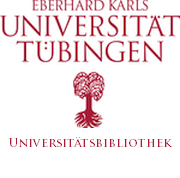Irgendwie laboristisch. Der ›Vorrang der Arbeit‹ in der Tradition der päpstlichen Sozialenzykliken
DOI:
https://doi.org/10.18156/eug-sh-2011-art-4Abstract
Die normative Forderung nach ›Vorrang der Arbeit vor dem Kapital‹ spielt in derSozialverkündigung der katholischen Kirche spätestens seit der Enzyklika Labo-
rem exercens eine zentrale Rolle. Dieser Artikel zeichnet die inhaltlichen Schwer-
punkte und die historische Entwicklung des katholischen Arbeitsverständnisses
vor dem Hintergrund des liberalen Arbeitsversprechens der europäischen Neuzeit
nach und macht dabei deutlich, dass sich die katholische Sozialtradition gegenüber
einem auf den je eigenen Arbeitsleistungen beruhenden Ethos individueller Freiheit
und Gleichheit in hohem Maße indifferent bzw. ablehnend verhält.
Im Blick auf die Sozialenzyliken Rerum novarum, Qudragesimo anno, Laborem ex-
ercens und Centesimus annus werden die eher ›postliberal‹ und ›kollektiv‹ ange-
legten Dimensionen des päpstlichen Verständnisses von Wesen und Wert mensch-
licher Arbeit und ihrer Bedeutung für den gesellschaftlichen Wohlstand analysiert,
die schon in Rerum novarum deutlich angesprochen werden. Seit dem II. Vatika-
nischen Konzil entstehen zudem Aufbrüche zu einer ›Theologie der Arbeit‹, in de-
nen es ebenfalls eher um die gemeinschaftlichen als um die individuelle Aspekte
der Arbeit der Menschen geht. Dennoch werden die damit verbundenen ›laboris-
tischen Herausforderungen‹, die den Grundtenor der päpstlichen Sozialverkün-
digung kennzeichnen, in den aktuellen Debatten der christlichen Gesellschafts-
ethik kaum aufgegriffen.
The normative claim of ‹priority of labor over capital› plays a central role in the social
doctrine of the Roman Catholic Church, at least since the papal encyclical Laborem
exercens (1981). This article deals with the characteristics and developments of the
catholic concept of human labor, in contrast to the specific ‹labor promise› of modern
Europe since the time of the Reformation and the Age of Enlightenment. That the
catholic concept of labor seems to be quite indifferent to this ‹labor promise› of
individual liberty and equality is one of the leading presumptions of this article.
Analyzing the papal encyclicals Rerum Novarum, Quadragesimo anno, Laborem
exercens and Centesimus annus the author stresses the rather ‹post-liberal› and
‹collective› dimensions of the popes’ thinking on human labor and its relations to
the common production of wealth and well-being of human communities. This topic
is of importance already in Rerum Novarum. Since the 1960s, following Second
Vatican Council, there is also an effort to elaborate a certain theology of labor as
well as dealing more with collective action than individual work. Nevertheless, in
the ongoing debates of contemporary Christian social ethics these ‹laboristic
challenges› of the papal encyclicals haven't been picked up.






